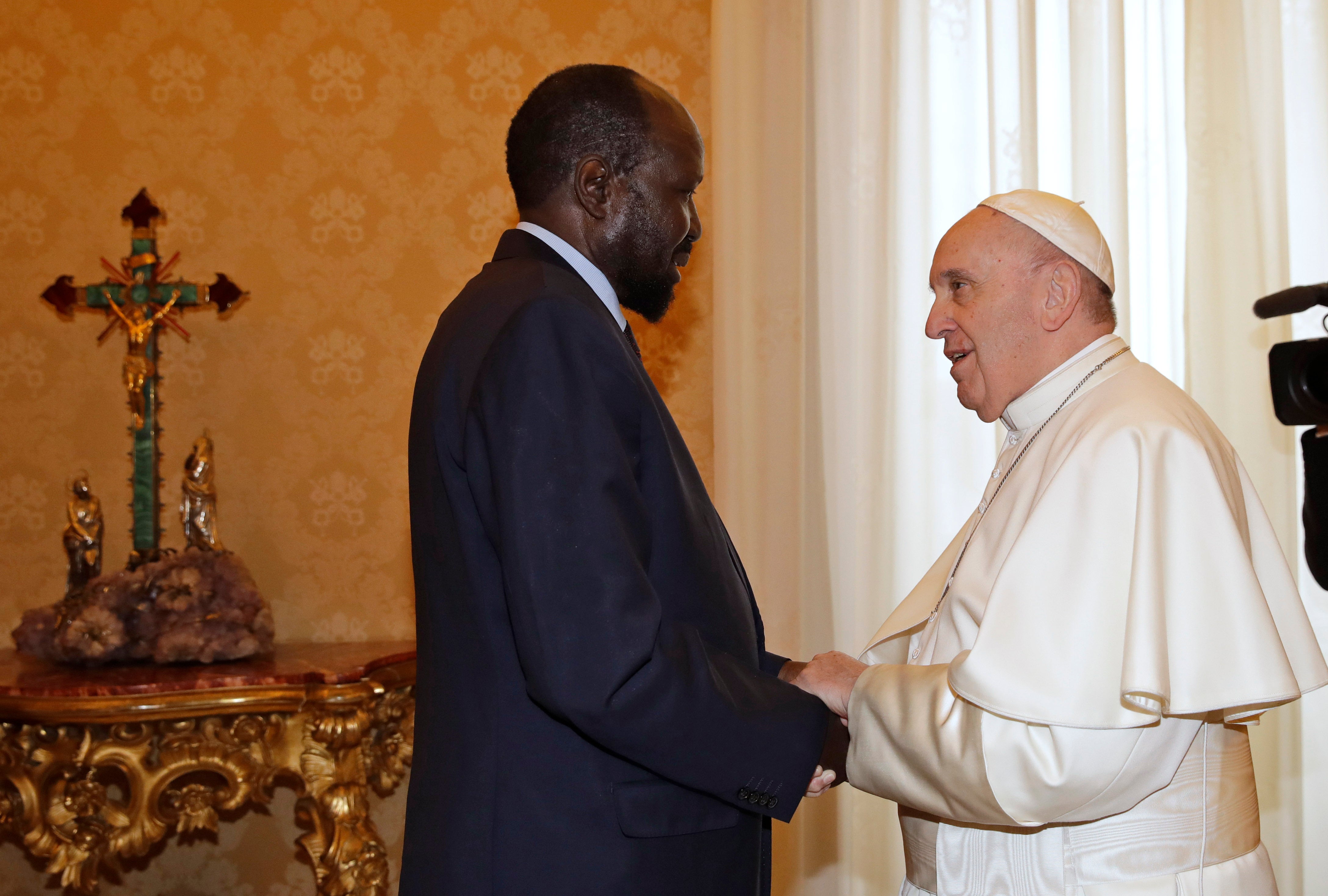Pope tells South Sudan leaders to make sacrifices for peace
Pope Francis and the Archbishop of Canterbury are urging South Sudan's rival political leaders to make the necessary personal sacrifices to consolidate peace

Your support helps us to tell the story
From reproductive rights to climate change to Big Tech, The Independent is on the ground when the story is developing. Whether it's investigating the financials of Elon Musk's pro-Trump PAC or producing our latest documentary, 'The A Word', which shines a light on the American women fighting for reproductive rights, we know how important it is to parse out the facts from the messaging.
At such a critical moment in US history, we need reporters on the ground. Your donation allows us to keep sending journalists to speak to both sides of the story.
The Independent is trusted by Americans across the entire political spectrum. And unlike many other quality news outlets, we choose not to lock Americans out of our reporting and analysis with paywalls. We believe quality journalism should be available to everyone, paid for by those who can afford it.
Your support makes all the difference.Pope Francis and the Archbishop of Canterbury marked the 10th anniversary of the independence of South Sudan on Friday by urging its rival political leaders to make the necessary personal sacrifices to consolidate peace.
The majority of the country’s population is Christian, and churches helped to rally international support when South Sudanese fought for independence from Sudan, which is overwhelmingly Muslim.
Francis, Archbishop Justin Welby and the Moderator of the Church of Scotland, Jim Wallace, repeated their hopes of visiting South Sudan in a joint message to the country’s leaders. But they noted that “much more needs to be done” to ensure peace and reconciliation.
“Sadly, your people continue to live in fear and uncertainty, and lack confidence that their nation can indeed deliver the ‘justice, liberty and prosperity’ celebrated in your national anthem,” the three religious leaders wrote, noting they had made the same appeal in a Christmas message.
“We encourage you to make even greater efforts to enable your people to enjoy the full fruits of independence,” they wrote, adding that this “may require personal sacrifice from you as leaders.”
There were high hopes for peace and stability when oil-rich South Sudan gained its long-fought independence from Sudan in 2011. But the country slid into ethnic violence in December 2013. The five-year civil war killed hundreds of thousands of people.
U.N. experts have warned that continued political, military and ethnic divisions were widening, leading to multiple violent incidents between the main signatories to last year's cease-fire, the possibility of renewed civil war, and nearly 100,000 people facing “famine-like conditions.”
In April, the U.N. experts said the slow pace of reforms by President Salva Kiir’s government and political disputes and disagreements over how to implement the February 2020 cease-fire and the 2018 peace agreement has led to frayed relations between Kiir and First Vice President Riek Machar, who led the armed opposition in the civil war.
Francis has been hoping to visit South Sudan for years but has been prevented by security concerns. In 2019, Francis invited South Sudan’s rival leaders to the Vatican for an Easter summit, stunning onlookers when he knelt down and kissed their feet in a humble plea for peace.